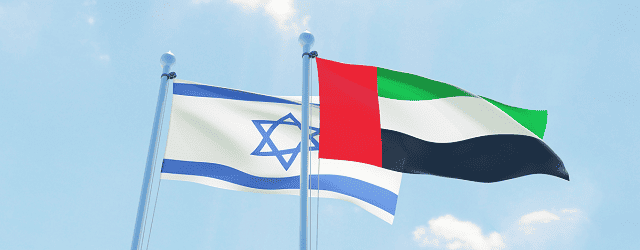Israel’s Economy Ministry calculates that the normalization of ties could increase exports to the UAE to US$300 million to $500 million annually while according to Moody’s Investors Services, UAE investments in Israel could reach US$350 million a year.

Last month’s landmark decision by the United Arab Emirates to normalize relations with Israel has attracted both plaudits and skepticism, but Israel is betting the agreement with the Persian Gulf’s second-largest economy will provide a trade windfall.
Israel’s Economy Ministry calculates that the normalization of ties could increase exports to the UAE to US$300 million to $500 million annually while according to Moody’s Investors Services, UAE investments in Israel could reach US$350 million a year.
The UAE is only the third Arab nation after Egypt and Jordan to formally establish ties with the State of Israel; Mauritania froze links in 2009. The surprise announcement by US President Donald Trump has fueled hopes that other Gulf sovereigns may emulate the UAE’s decision, paving the way for deeper regional economic integration.
Yet the reality looks more nuanced. Saudi Arabia has said it will not recognize Israel absent a peace agreement with the Palestinians and Kuwait has all but ruled out any rapprochement. Nonetheless Bahrain and Oman as well as Sudan and possibly Morocco have been tipped to follow the UAE’s move. Oman received Israeli Prime Minster Benjamin Netanyahu on a visit to the sultanate in 2018; the following year, Bahrain hosted the US-sponsored Peace to Prosperity conference attended by Israeli media and business leaders.
Whether the initial euphoria surrounding the agreement leads to formal ties looks uncertain, how-ever. The UAE move was broadly welcomed by their leaders, but civil society figures in Bahrain and Oman expressed reservations.
The pivot point could be the economy. If the UAE succeeds in securing Israeli investment, other cash-strapped Gulf governments may take notice. For Oman, this would be one way of lessening dependence on its Gulf neighbors for a bailout.
For now, the UAE’s security, healthcare, transport and logistics sectors look to be the main beneficiaries of new cross-border opportunities. But investment in Israel by UAE firms may be more difficult. Political uncertainty remains a threat to the deal if Netanyahu revives plans to annex additional parts of the West Bank, for example, or pushes back against Gulf defense deals that diminish Israel’s security. Additionally, the UAE risks aggravating simmering tensions with Iran and Turkey.



